Liberia overcomes Ebola, but challenges remain
The World Health Organization (WHO) officially declared Liberia Ebola-free on Saturday, May 9, as it passed the 42-day threshold with no new cases of the disease being reported. The announcement prompted national celebrations, and the government proclaimed the following Monday a public holiday to allow workers and students to join in the festivities held in Monrovia. In light of the country’s Ebola-free status, international donors renewed their attention to boosting the country’s weakened public health institutions and spurring economic recovery, given the adverse effects the crisis inflicted on trade, investment and regional integration efforts. On these fronts, the European Union pledged $50.8 million in state-building support to Liberia with a focus on enhancing the provision of important health services, rebuilding security and judicial services, and improving management of public funds. Last month, the World Bank Group had similarly put forward a package of $650 million for Guinea, Liberia and Sierra Leone to help finance their longer-term development priorities.
As Liberians celebrated the end to the epidemic, Guinea and Sierra Leone continue to report cases of the disease, seven and two confirmed cases, respectively, for the week ending on May 10. Although this is a dramatic drop from the peak nearly six months ago, continued support and implementation of lessons learned throughout the crisis is considered crucial to bring the number of new cases in these two countries to zero and to prevent future outbreaks.
The U.S. Senate votes to reauthorize the African Growth and Opportunity Act
On Thursday, May 14, the U.S. Senate voted to reauthorize the African Growth and Opportunity Act (AGOA) as part of a series of bills to extend American trade preference programs for developing countries. The bill received significant support, with 97 Senators voting in favor of its passage. Senator James Lankford (R-OK) was the only legislator to oppose the proposal, citing issues with the methods used to classify the bill as “budget neutral.” If matched by action in the U.S. House of Representatives and ultimately signed by President Obama, this reauthorization will continue AGOA for a ten-year period, marking the longest extension the bill has ever received. Short-term and uncertain renewal processes have in the past been cited as one of the largest obstacles to the program’s success.
Alleged coup during President Nkurunziza’s absence escalates unrest in Burundi
On Wednesday, May 13, while Burundi President Pierre Nkurunziza was in Tanzania for the East African Community (EAC) summit on the nation’s crisis, former head of the Burundi Intelligence Service General Godefroid Niyombare, made a radio announcement claiming President Nkurunziza had been overthrown. The EAC summit was also attended by Assistant Secretary for African Affairs Linda Thomas-Greenfield. The news of the coup was greeted with celebration, followed by protest. The army split into two distinct rival groups: those supporting the President and those backing the coup. The alleged coup was condemned by the U.N. Security Council and the EAC. On Thursday evening, the presidential office announced that President Nkurunziza had returned from Tanzania and that the coup had failed. General Niyombare has now surrendered.
Amid protests, the number of people fleeing the landlocked east-African nation continues to increase. In the last month, over 50,000 people have sought refuge in neighboring countries. The U.S. embassy in Burundi has closed and non-emergency staff members are now leaving the country. Earlier this week, Belgium suspended aid to Burundi and the Belgium-Netherlands police training program was also put on hold.
South Africa: New leader of the Democratic Alliance party elected
South Africa’s main opposition party, the Democratic Alliance (DA), elected Mmusi Maimane as its first black leader on Sunday. Whilst the African National Congress (ANC) continues to hold a strong support base, the DA has grown significantly over the last decade, winning roughly 22 percent of votes in the last general elections in 2014.
In his first speech as the leader of the DA, Maimane urged party members to fight for a fairer society with equal opportunities for all. High youth unemployment and lack of adequate opportunities continue to plague the country. Though the South African government has implemented a number of initiatives to address these issues, economic growth so far has done little to reduce poverty or unemployment. High youth unemployment has also been identified as one of the key reasons for the xenophobic attacks in the country over the last few months.
For more information on the issue of inclusive growth in South Africa, please refer to AGI Fellow Haroon Bhorat and Morne Oosthuizen’s Foresight Africa 2015 article.
Upcoming event: “Counterterrorism and state-building in Somalia: Progress or more of the same?”
On May 21, Brookings Africa Security Initiative will host a discussion on the political and military developments in Somalia. The event will mark the official launch of the Africa Security Initiative, which will bring together scholars from the Brookings Center for 21st Century Security and Intelligence, the Africa Growth Initiative, and other research institutions.
You can register for the event here.
The Brookings Institution is committed to quality, independence, and impact.
We are supported by a diverse array of funders. In line with our values and policies, each Brookings publication represents the sole views of its author(s).
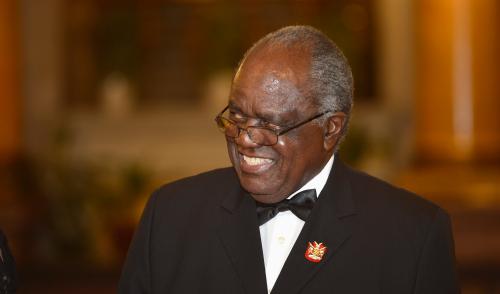
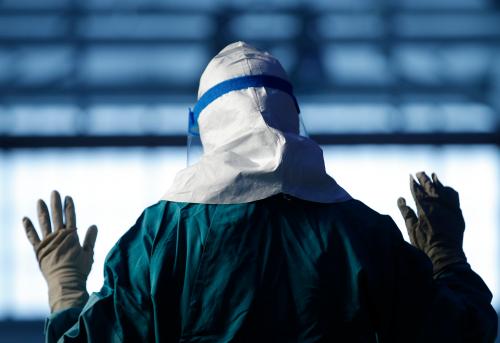
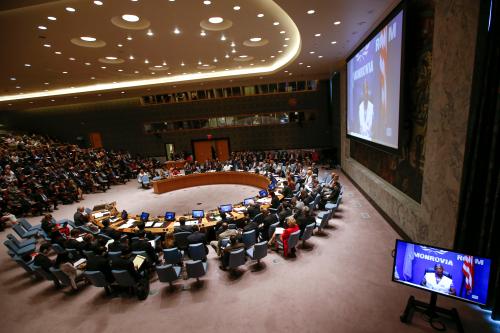
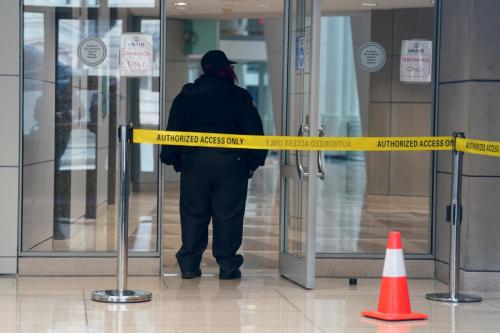

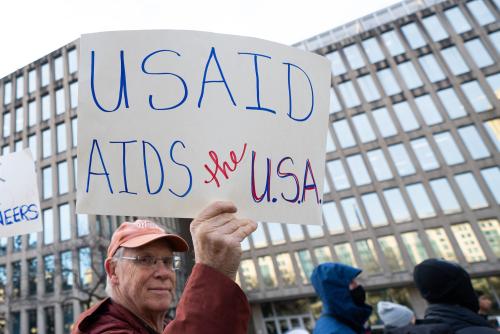
Commentary
Africa in the news: Liberia declared Ebola-free, U.S. Senate passes AGOA, unrest escalates in Burundi, South Africa’s Democratic Alliance elects their first black leader
May 15, 2015